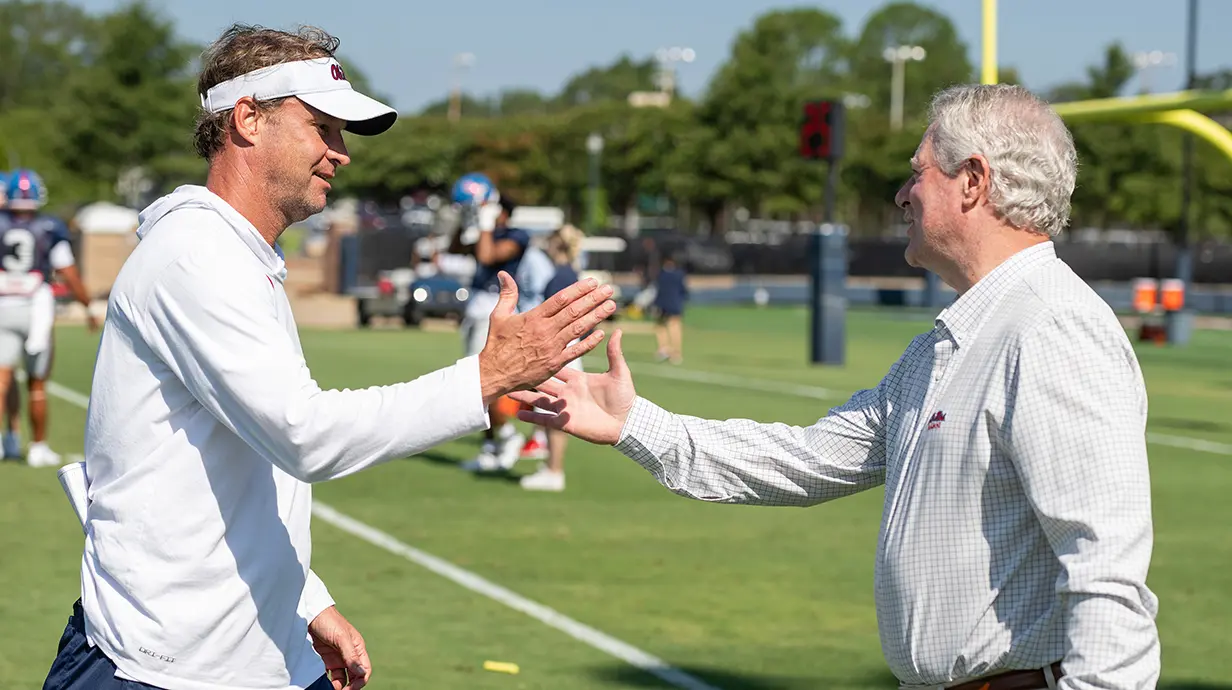A storm of controversy has erupted following the recent appointment of University of Mississippi (Ole Miss) Chancellor Glenn Boyce to the NCAA’s highest governing body, the Board of Governors. Boyce, who took the reins at Ole Miss in 2019, will now play a significant role in shaping the policies and direction of the NCAA, an organization that oversees collegiate athletics in the United States. However, his appointment has sparked widespread criticism, particularly from those concerned about his past and the circumstances surrounding his leadership at Ole Miss.
The primary source of the controversy dates back to Boyce’s hiring as Chancellor. His selection in 2019 was met with significant backlash from students, faculty, and alumni, many of whom criticized the transparency and process behind his appointment. Boyce had previously led the Mississippi Institutions of Higher Learning (IHL), the governing body that ultimately chose him for the Ole Miss role. This perceived conflict of interest, combined with a lack of public input during the selection process, led to protests on campus and a general feeling of distrust among segments of the university community.
Now, with Boyce’s appointment to the NCAA Board of Governors, critics are raising concerns about whether someone with such a contentious history at their own institution should be tasked with guiding the policies of the entire collegiate athletic system. The Board of Governors is responsible for key decisions in college sports, including issues of athlete compensation, diversity, and governance reform—areas that are under intense scrutiny and where strong, credible leadership is essential.
Supporters of Boyce, however, point to his extensive experience in higher education and leadership. They argue that his understanding of the challenges facing universities, particularly in the South, could be an asset to the NCAA during a period of significant transformation. The organization is facing pressure to address major issues such as name, image, and likeness (NIL) rights for student-athletes, conference realignment, and growing debates about the role of college sports in higher education.
The controversy also touches on broader concerns about the NCAA’s governance. Critics have long argued that the organization is slow to adapt to changing dynamics in college sports, and some fear that appointing leaders with contentious histories could further alienate key stakeholders, including athletes, coaches, and fans. Many argue that what the NCAA needs now is not just experience, but a commitment to transparency, inclusivity, and reform—qualities they feel Boyce’s past controversies might undermine.
As the debate around Boyce’s appointment continues to escalate, many within the Ole Miss community and beyond will be watching closely to see how his role on the NCAA Board of Governors evolves. His ability to navigate the pressures of this high-profile position, while managing the concerns of his critics, will likely shape perceptions of his leadership in the broader context of collegiate athletics. For now, the controversy surrounding his appointment has reignited discussions about the future of college sports governance and the need for accountability at the highest levels.
